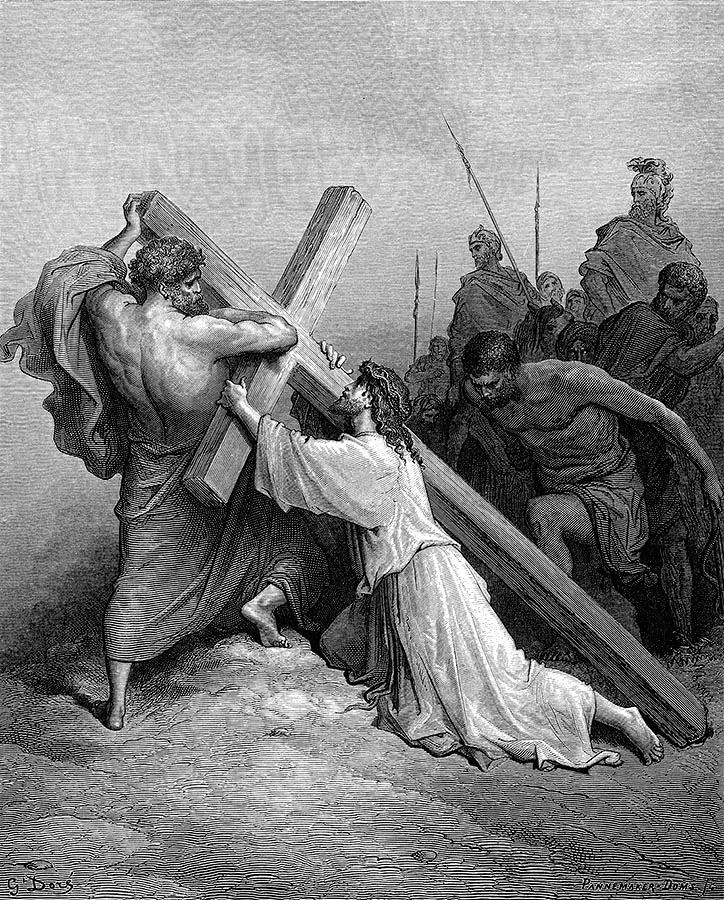Prophet from Nazareth ("Jesus. Historical investigation" by Yulia Latynina Review)


Religion is an integral part of human consciousness.
Since the time of the Cro-Magnons, fleeing from the cold by the fires of caves decorated with drawings, we have been trying to explain the world around us, to make it understandable and logical from the point of view of our knowledge and experience. We get to know the surrounding reality with the help of stories that we tell ourselves. That's why we came up with them. They worshiped them, feared them, made sacrifices to them. Gods whom we have created in our own image and likeness.
The same subjects wander from people to people, from culture to culture. There is a god who created all that exists. There is a monster with which he fights. There are lesser gods. Heroes, their exploits. All this is at the heart of a culture that originates in Sumer and Mesopotamia. Amon-Ra, Marduk, Yahweh, Zeus, Odin … Their time has passed along with the peoples who believed in them. The new era brought with it a new god who was once a man. He was sent to Earth to live the life of a righteous man, to carry the word of truth and to be innocently killed by Roman soldiers, in order to resurrect and ascend on the third day, leaving behind tens and hundreds of supporters, whose church will last for thousands of years …
...and whose head was in fact a fanatic terrorist, an analogue of Osama bin Laden, who preached hatred of the Gentiles and heretical for Judea hypocrisy; He is the domineering and charismatic leader of the sect of Jewish Zealots, hiding from the collaborative Sanhedrin in the deserts of Qumran and seizing the Temple of Jerusalem at Easter during the reign of King Herod and Emperor Nero, but suffered a crushing defeat.
Yes, if you believe the book by Yulia Latynina, all this is he - our cool fellow Christ.

"Jesus. A Historical Investigation" is not an easy book, even from the point of view of an atheist raised by Dawkins, Taxil and Nevzorov. It is difficult, but very interesting to read. Latynina does not discount the unpreparedness of the reader and immediately plunges into the depths of history, quoting, commenting on and criticizing ancient authors, to whom she has many questions. With the help of straightforward logic and some assumptions, carefully, but at the same time with the fervor of a man in love with his work, Yulia Latynina retells the key events of the Old Testament from the point of view of history, restores the chronology of the early Jewish state and its religion (you knew, for example, that Moses believed in many gods and spirits?) and smoothly leads to the central theme of the book - the atmosphere and environment, in which in 4-37 years. n. e. lived Jesus, the son of Joseph of Arimothy, and his brother James the Righteous, almost erased from the Bible, but not from history, who became the head of the cult of Christ after his execution and whose death at the hands of the high priests was the beginning of the Jewish war.

And this is amazing. Before reading this book, I thought that Jesus either did not exist at all (sorry, miracles and signs do not fit into my picture of the world) or that he was such a noble hero-solitary, street philosopher of kindness and love, "non-systemic opposition" , who fought with the Roman invaders in word, not deed. The prophet of peace, not war, in fact, a politician, killed by enemies just like that. Latynina's book debunks this notion - and a lot falls into place. The Bible, this ancient Wikipedia, suddenly becomes very logical. And the parallels with today are a little scary.
The God of the Old Testament called to honor the law of Israel and to organize jihad on the unbelievers. The Qumran desert cultists, whose scandalous scrolls were found on the shores of the Black Sea in the 1990s, were fanatical extremists, close to the Sicari assassins and terrifying all of Jerusalem. John the Baptist was a member of this sect, a prophet of hatred. His disciple, Jesus, was also a zealot.

Moreover, not a single true saying of Jesus of Nazareth, except for general phrases, has survived in the Bible. The Sermon on the Mount was most likely an insert by the apostle Paul. The earliest Gospel, the only one written by a witness to the events, is the most boring and uninformative. The latest written by Paul's friend Luke is the most detailed and incredible. The Acts of the Apostles, written again by Luke, is the whole story of the adventures of the Apostle Paul, who reformed the teaching of Christ, so much so that Christ's disciples began to hunt him down. The "Apocalypse" of John, the beloved disciple of Christ, is an allegorical pamphlet full of religious propaganda against specific persons of that era, such as King Herod Agrippa and Emperor Nero, and not at all a prediction of the real end of the world. And this is only part of the list of things from Latynina's book that are shocking enough for an unprepared reader.
Should you believe it? Well, there is enough reason for that.
The Bible is very fragmentary and contradictory. The God of the Old Testament is an evil, petty, jealous and bloodthirsty person, while the God of the New Testament is a kind, non-personified and almost non-participating being who does not seek to kill anyone (people do an excellent job of it themselves). Some fragments speak for themselves - either Enoch ascends to heaven and speaks with God one-on-one, although for everyone else even the sight of God is deadly (yes, the wonderful film by Kevin Smith "Dogma" quite accurately played it with a joke), then some then the Sons of God seduce the Daughters of Man (sorry, what? It turns out that before the religious reform of King Hezekiah, the Jews adhered to polytheism and had a rather peculiar pantheon of gods and spirits). All the inconsistencies in the Bible make sense when you consider how and why each book was written at a time when the prophets needed strong foundations to govern those anointed to the kingdom. Everything makes sense when viewed in the context of the history and interests of specific individuals.
Winners write history.
And Christianity, one of only three (!) Religious movements that were banned in religiously tolerant Rome (the other two are bacchanalia and the religion of the Druids, which were banned for ritual murders), definitely won the competition for the right to survive. And she used her power not only over the present, but also over the past. Therefore, Pontius Pilate writes penitential reports on the execution of Christ to three Roman emperors at once, the Apostle Paul convinces the philosopher Seneca to convert to Christianity, there are a million unconfirmed signs and wonders, objectionable books of the Bible are either withdrawn from its canon, as the "Gospel of Judas", or are carefully edited, losing consistency and historical accuracy, but whitewashing the movement itself.
Julia Latynina's book "Jesus. Historical Investigation" seems to me to be very important.
It gives an interesting, in its own way exotic point of view, on the side of which you are free to stand up or not stand up, but it looks logical and believable, and parallels with today, including references to modern religiously-tinged terrorism of the East and hybrid wars " superpowers" look interesting.
I highly recommend this historical, religious, polemical book for reading. If you believe in Jesus Christ as a symbol of all the good and good that is in this world, then most likely you will not like it and you will want to remember the excellent practices of the times of the Spanish Inquisition (think, a couple of thousand heretics were burned - "they would try do it in Micheti! "). but if you are open to new things and are ready for something that may change your views, then this book will be very useful for you. It frees one from illusion, brings clarity, breaks the chains. It was not easy to read, especially at first - but I'm glad I did. A fascinating documentary study of the times when the prophets overthrew the kings, and the head of the terrible "fourth sect" almost staged a coup in Rome-occupied Jerusalem, but suffered a terrible defeat, which gave rise to the most influential religion on Earth.



Comments